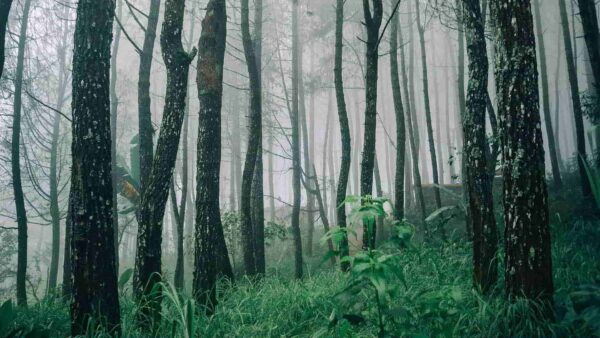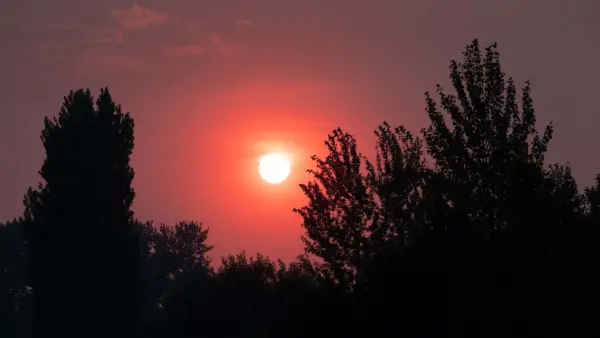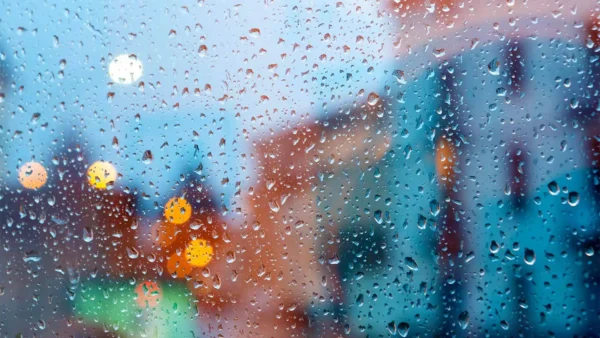There’s a popular notion out there, most likely fueled by old Hollywood movies, that so-called “acts of God” are not covered by home, car or life insurance policies. This is more myth than reality. But there are some important points to remember. Your standard home insurance policy is equipped to deal with damage to your property caused by severe storms like hurricanes, ice storms and hail. And while floods and earthquakes aren’t covered in a standard policy, these types of natural disasters can usually be included by purchasing add-ons or endorsements. The only natural disaster that Ontarians cannot generally insure against is a landslide.
The effects of climate change have begun to impact our lives in very tangible ways, and the insurance industry is starting to feel the heat in more ways than one. Of the ten worst years ever for insurance losses related to severe weather in Canada, nine of them have been in the last twelve years (2011-2022). Severe weather losses in 2022 totaled more than $3.1 billion, the third highest ever, and these trends show no signs of reversing.
With statistical models now warning us that extreme weather events are only going to increase in intensity and frequency in the coming years, it has never been more important to ensure that you have the right coverage.
So let’s focus on what natural disasters are commonly covered under a typical home insurance policy, and which ones need to be added through endorsements if necessary.
Does my home insurance policy already include natural disasters?
What kind of coverage you ultimately have depends on a number of factors:
- The type of natural disaster – Most weather events are covered under standard home insurance policies. This includes loss or damage caused by:
- Torrential rains
- Lightning
- Hail
- Windstorms, including tornadoes and hurricanes
- Ice storms
- Wildfires
- Location – Exactly where your property is situated has a big effect on your coverage and premiums. If you’re in an area more susceptible to wildfires, flooding or earthquakes, you’ll pay higher premiums, and in certain circumstances may find it hard to obtain coverage at all.
- Your choice of coverage options – Some natural disasters, such as floods and earthquakes, are not included in a standard policy, but can be added. Other options, such as higher deductibles, can influence the coverage you have and the cost.
- Your insurance provider – Insurers have different policies. Be sure to ask your insurance broker exactly what you’re covered for, and what options you have to strengthen that protection.
Am I covered for floods and earthquakes?
Floods and earthquakes are NOT covered by a standard home insurance policy, but can be added by endorsement. This means that, depending on where you live, you can usually be covered, it’s just going to cost you more.
Earthquakes: While earthquakes are more of a concern out west, here in Ontario there is reportedly a 10 – 15% chance that the Ottawa area could see a substantial earthquake within the next 50 years.
- Standard coverage: Most people are already protected, through their home insurance policy, for any damage resulting from fire, explosion or smoke after an earthquake. But be sure to check by asking your broker.
- By endorsement: Damage resulting directly from an earthquake is not covered but can be added for those who are eligible. Earthquake insurance can have a deductible between 5 – 20% of the total coverage, which is high, but damage from a quake can be quite extensive.
Note: Damage from a tidal wave or tsunami that’s caused by an earthquake, isn’t typically covered.
Floods: Water damage is now the number one cause of home insurance claims. It accounts for roughly 50% of all payouts by insurance companies. More and more people are vulnerable to this kind of natural disaster, yet many of us are only protected from water damage if the source of the flood is located inside the home, such as from a burst pipe.
- Standard coverage: Your existing policy most likely covers you for damage caused by the flooding of your home resulting from a sudden and accidental escape of water, most likely a burst pipe. Slow leaks are not covered as this is something you should have had fixed before it became a problem.
- By endorsement: There are a number of endorsements you can purchase to make your policy more robust when it comes to flood damage.
- Overland flooding: If your property is not situated in an area with repeated flooding, you can add coverage to your policy that protects you from overland flooding, such as when a river or lake overflows. You will be covered for water that enters your house through a window, door or other opening, such as where the wood frame meets the foundation.
- Sewer backup: This covers you for damage caused by water that has entered your home through pipes as a consequence of an external flood.
- Groundwater: This protects you against water seeping in through cracks in your foundation. Very few insurance companies in the province sell it. And even then, due to the extensive cost of digging up the foundation and resealing everything, they’ll only cover you for one occurrence. After that, you are on your own.
The premium for these special endorsements, or add-ons, are based on four factors:
- Where you live – The more your property is vulnerable to such risks, the higher your premium will be.
- The age of you home – How old your home is, and what it’ll cost to repair it, has a major impact on premiums.
- The coverage limit you need – This is based on your own estimates.
- Amount of deductible – As always, the higher the deductible, the lower the premium.
What can I do to lower my risks and prevent damage?
There are a number of things you can do in and around your home to help minimize the risks and prevent extensive damage in the event of a natural disaster. Some of these are even required in many municipalities, so it’s wise to check.
- Install a backflow valve to prevent sewer backup from flowing into your basement
- Store any valuable items in plastic bins, on skids, a shelf or upper floor
- Disconnect downspouts from the sewer system
- Direct run-off water away from your home through ditches and slopes
- Install hurricane straps to your roof
- Strengthen your home’s foundation to prevent shifting
- Reinforce your water heater with earthquake strapping
Note: Some municipal governments offer rebates for home improvements that help lower your risks.
Is my car covered in the event of a natural disaster?
If you already have comprehensive car insurance, you’re most likely covered for damage or loss resulting from a major weather event. Still, it’s a good idea to review your policy for any specific exclusions or speak with your broker.
Here are some handy tips for mitigating the risks to your vehicle:
- Park the car in your garage or in an underground space
- If hail is in the forecast, put a protective cover over your vehicle – this also helps prevent leaking, especially if you have a sunroof
- If flooding is expected, park on higher ground
- Avoid parking beneath large trees or anything else that can be blown over onto your car, and cut back those tree branches at home
Call Mitch at 1-800-731-2228 today to find an insurance policy that provides you shelter from the coming storms.
Looking for home insurance?
Speak with a Mitch Insurance broker today to get a quote on Ontario home insurance.
Call now
1-800-731-2228







